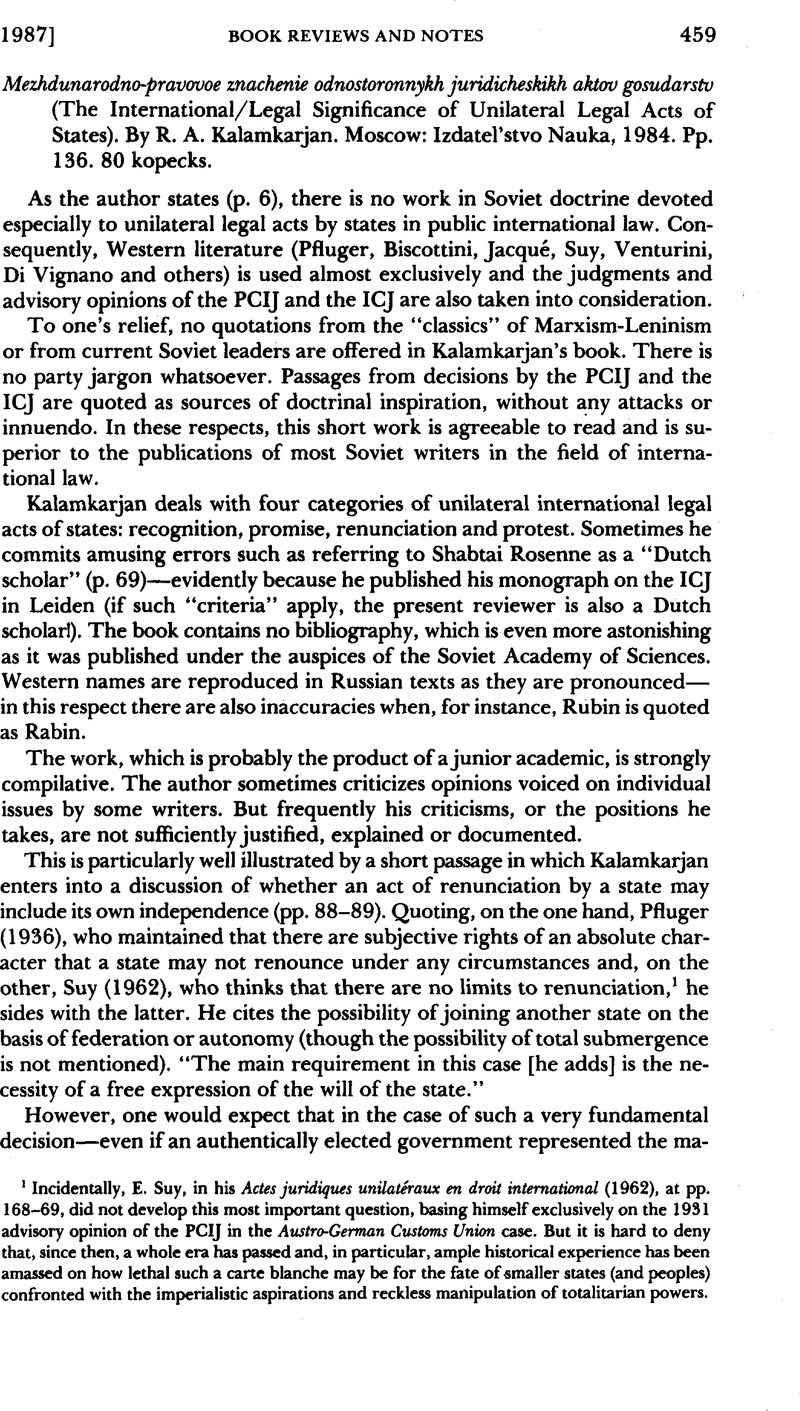No CrossRef data available.
Published online by Cambridge University Press: 27 February 2017

1 Incidentally, Suy, E., in his Actes juridiques unilatéraux en droit international (1962), at pp. 168–69 Google Scholar, did not develop this most important question, basing himself exclusively on the 1931 advisory opinion of the PCIJ in the Austro-German Customs Union case. But it is hard to deny that, since then, a whole era has passed and, in particular, ample historical experience has been amassed on how lethal such a carte blanche may be for the fate of smaller states (and peoples) confronted with the imperialistic aspirations and reckless manipulation of totalitarian powers.
2 Cf Pravda, June 11, 1986, at 4.
3 Such initiatives were allegedly demonstrated by the Bulgarian party leadership in the past, but apparently rejected by the Soviets as “premature.” However that may be, Todor Zhivkov, referring to the USSR, promised that his country will act with it “as one organism, which has one set of lungs and one blood system”; compare my System of the International Organizations of the Communist Countries (1976), at p. 152.
4 Cf. United Nations News Digest, Press Release No. WS/1291, July 3, 1986, at 5.
5 For a few critical comments on “socialist internationalism,” see my review of the East German Voelkerrecht. Lehrbuch (1981/82) in 78 AJIL 512–13 (1984).
6 Cf. Pravda, June 12, 1985, at 4.